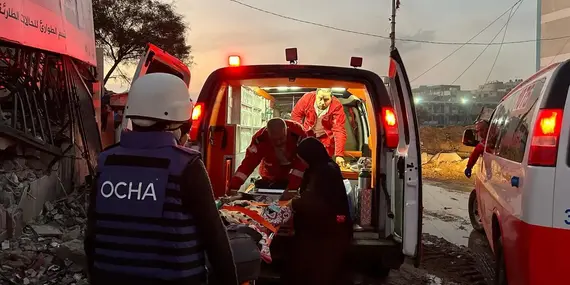Occupied Palestinian Territory

The Occupied Palestinian Territory faces a protracted protection and political crisis characterized by more than 56 years of Israeli military occupation, 16 years of the Gaza blockade, internal Palestinian divisions, lack of adherence to international humanitarian and human rights law, and recurrent escalations of hostilities between Israeli security forces and Palestinian armed groups. The latest round of hostilities which commenced in October 2023 is ongoing and has resulted in unprecedented levels of destruction and suffering, including tens of thousands of Palestinian casualties, hundreds of Israeli casualties, and over 240 hostages from Israel. Nearly all of Gaza’s over 2.3 million people have been displaced, lacking access to sufficient shelter, food, life-saving medical services, clean water, education and livelihoods.
In the West Bank, Palestinians in Area C, East Jerusalem and the H2 area of Hebron city continue to face a coercive environment due to a range of longstanding Israeli policies and practices, which have intensified since October 2023. The restrictive and discriminatory planning regime applied in Area C and in East Jerusalem prevents Palestinians from addressing basic housing, livelihoods, and service needs. Further components of the coercive environment of continuing concern are excessive use of force, demolitions, evictions, settlement expansion, and settler-related violence. Combined, they drive insecurity, deprivation of basic human rights and humanitarian needs among Palestinians.
The humanitarian community has been working tirelessly to address the needs of affected Palestinians across the Occupied Palestinian Territory, to alleviate their suffering and strengthen their resilience.
In 2024, the severity of people’s needs will likely increase if the war in Gaza continues and the ability to carry out humanitarian operations is not secured. To alleviate needs, conflict de-escalation, policy change, positive movement on mending internal Palestinian political divisions, and development and economic improvements are required. The key drivers of the humanitarian crisis – combined with the effects of the economic crisis – have deepened Palestinians’ vulnerability. Without a political process, long-term improvements are not expected.
A US$1.2 billion Flash Appeal for the Occupied Palestinian Territory was launched to meet critical needs for 2.7 million people – 2.2 million in the Gaza Strip and 500,000 people in the West Bank, including East Jerusalem, from October and through 31 December 2023. It outlines the minimum to prevent further loss of life considering the ongoing siege and bombardment of Gaza and the escalating situation in the West Bank. The requirements of the United Nations Relief and Works Agency for Palestine Refugees in the Near East are included in the appeal.
